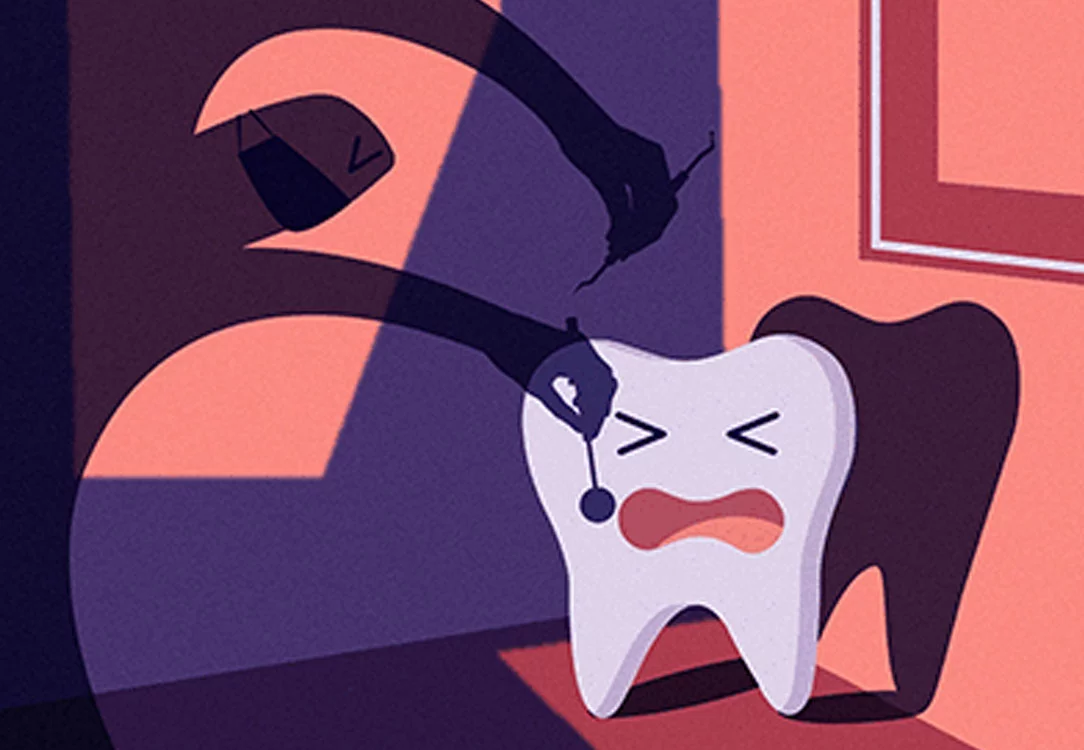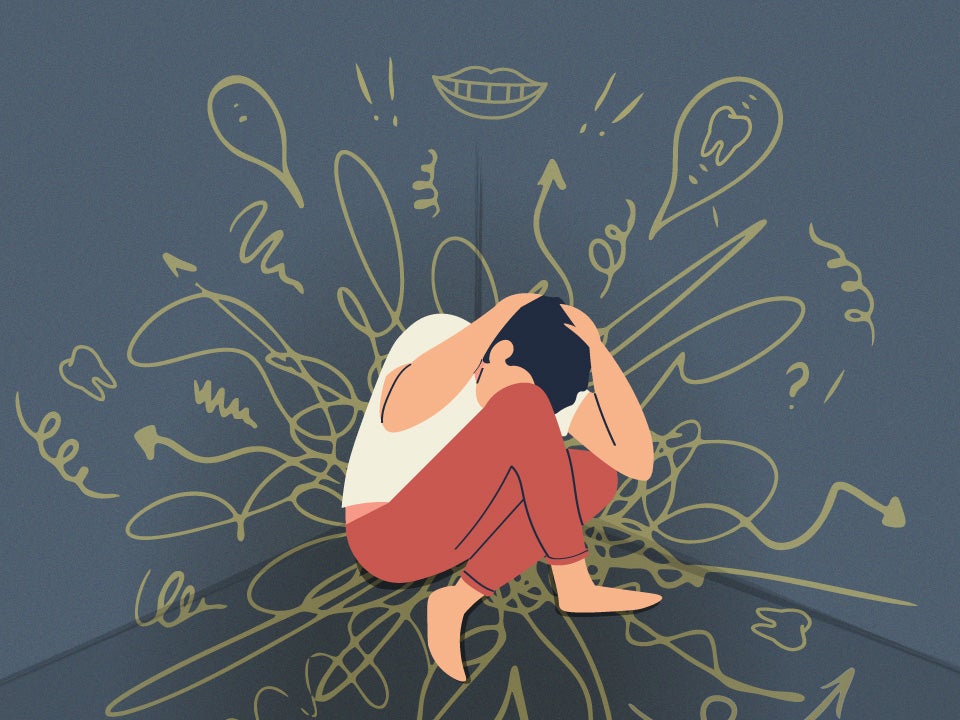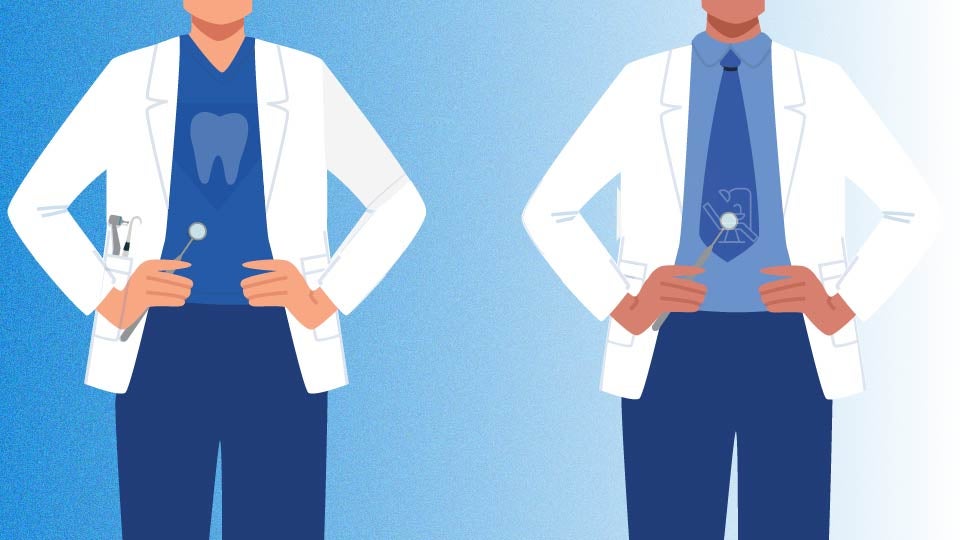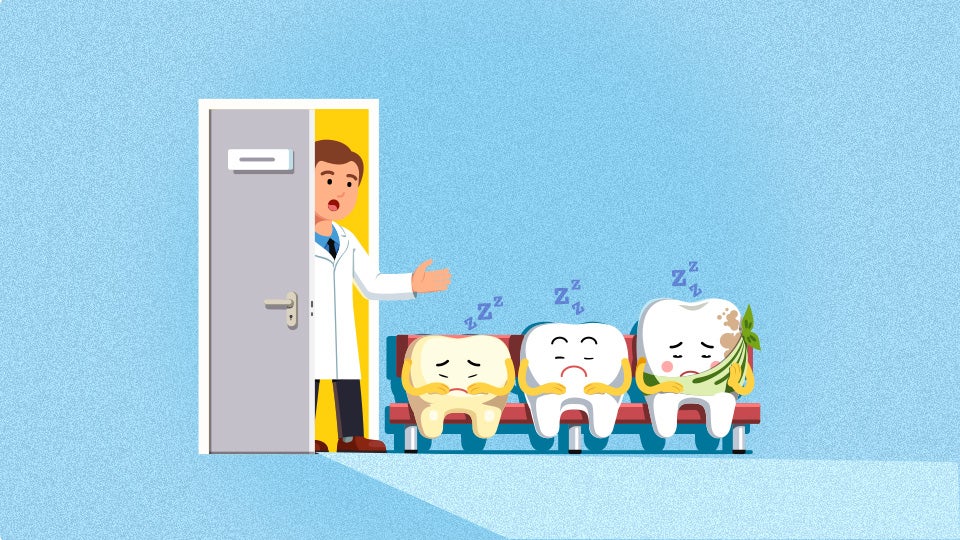What is Dental Anxiety?
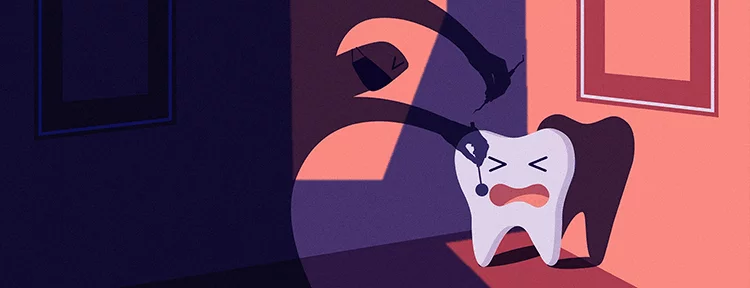
What is Dental Phobia?
How many people have a Fear of the Dentist
If you experience fear of the dentist, you are not alone. Nearly 40 percent of all people have dental fear or anxiety (36%), with a small percentage suffering from extreme worry (12%).
Why is Fear of the Dentist so Common?
There’s also evidence that suggests some people are genetically predisposed to fear pain and experience dental anxiety. Researchers out of the University of West Virginia indicate you inherit your fear of the dentist from your parents.
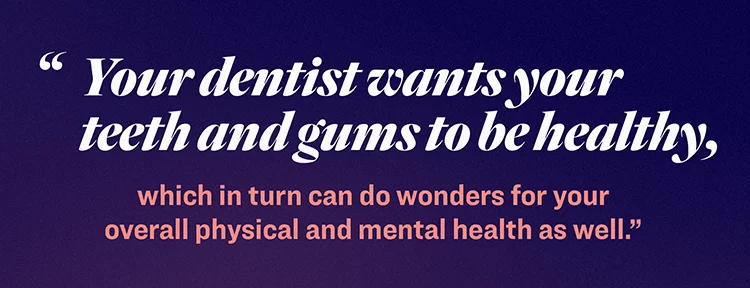
How to Ease the Fear
- Discuss any fears you might have – however small they may seem – with your dentist. They may have techniques and strategies to ease your concerns and help you overcome any specific anxieties.
- Try cognitive-behavioral exercises such as muscle relaxation, intentional breathing and replacing negative thoughts with positive ones. [i]
- Many patients bring distractions to the dental chair with them. Harvard Health readers with dental anxiety recommend bringing funny books or podcasts, music, or audiobooks to keep their minds busy during their cleaning and dental treatment. Some practices provide TVs in the operatory and waiting room that can help distract patients from any anxious feelings they might be having. Some dental practices use aromatherapy to help patients relax.
- Some patients ask the dentist or the hygienist to explain everything before doing it. By knowing what to expect, they have fewer surprises that can trigger a fearful response. Some dental clinicians will enlist the help of the patient to hand them instruments to make them part of the treatment.
Sedation Dentistry
Another option is to request sedation dentistry. Web MD describes sedation dentistry as using medication to help patients with dental fear relax in the treatment chair. There are four levels of sedation dentistry. Minimal sedation has patients awake but relaxed. Moderate, which used to be conscious sedation, means you are awake but won’t remember much of your dental treatment. Deep sedation is close to unconscious but able to be awakened. General anesthesia means unconscious as you would be for surgery. The way the sedation is administered depends on what level of sedation the dentist thinks would be best for your situation.
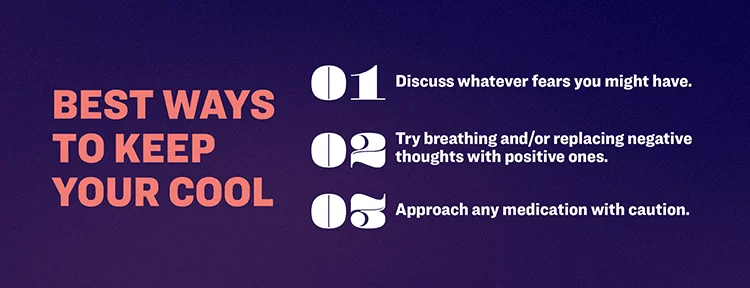
Cost of Not Going to the Dentist
- Bleeding and swollen gums
- Chronic bad breath
- Sensitivity to hot and cold, as well as pain when chewing
- Increased decay requiring more intensive restorative work that is more involved and expensive than simple fillings
- Loss of gum tissue and bone as the infection continues to develop in the teeth and gums
- Loss of teeth to decay
- Missing early signs of oral cancers and other systemic conditions that will only grow more lethal with time
Speak with a Dentist
Teledentistry
You might have heard of teledentistry as an option for your dental care. Teledentistry is a virtual appointment that allows your Smile Generation-trusted dentist to provide care from a distance over the internet. These virtual dental appointments grew in popularity during the COVID-19 Pandemic when in-person care was unavailable. However, it is also excellent for easing patients with dental anxiety into an appointment with their dentist. First, you can talk to the dentist about your concerns in a comfortable place. Then, your dentist can share possible treatment options for you to consider. This initial consultation can help ease some of your fear about seeing the dentist in person.
If you are one of the millions of people with dental anxiety, consider making an appointment at a Smile Generation-trusted Office near you. Use our Find a Dentist tool to find a dentist near you. You’ll find your concerns seriously by a team that welcomes your questions and is committed to helping you feel comfortable and safe during your dental visit.
Find your trusted, local dentist today!
Sources
Cherney K. Fear of the Dentist: How to Cope with Dentophobia. Healthline.com. https://www.healthline.com/health/mental-health/fear-of-dentist. Published 2020. Accessed April 25, 2022.
Fritscher L. Fear of Going to the Dentist aka Dentophobia. Verywellmind.com. https://www.verywellmind.com/dentophobia-fear-of-dentists-2671855. Published 2020. Accessed April 25, 2022.
Beaton L, Freeman R, Humphris G. Why are people afraid of the dentist? Observations and explanations. Med Princ Pract. 2014;23(4):295-301. doi:10.1159/000357223
Frisbee, DMD E. Easing Dental Fear in Adults. Webmd.com. https://www.webmd.com/oral-health/easing-dental-fear-adults. Published 2021. Accessed April 25, 2022.
West Virginia University - Eberly College of Arts and Sciences. (2016, October 13). Dreading your next trip to the dentist?. ScienceDaily. Retrieved April 18, 2022 from www.sciencedaily.com/releases/2016/10/161013111707.htm
Clay R. Drilling down on dental fears. https://www.apa.org. https://www.apa.org/monitor/2016/03/dental-fears. Published 2016. Accessed April 25, 2022.
MacDonald A. Dental fear? Our readers suggest coping techniques. - Harvard Health. Health.Harvard.edu. https://www.health.harvard.edu/blog/dental-fear-our-readers-suggest-coping-techniques-20100825327. Published 2010. Accessed April 25, 2022.
Clay R. Drilling down on dental fears. https://www.apa.org. https://www.apa.org/monitor/2016/03/dental-fears. Published 2016. Accessed April 25, 2022.
Watson S. What Is Sedation Dentistry?. WebMD.com. https://www.webmd.com/oral-health/sedation-dentistry-can-you-really-relax-in-the-dentists-chair. Published 2020. Accessed April 25, 2022.
Fritscher L. Fear of Going to the Dentist aka Dentophobia. Verywellmind.com. https://www.verywellmind.com/dentophobia-fear-of-dentists-2671855. Published 2020. Accessed April 25, 2022.
Smile Generation blog articles are reviewed by a licensed dental professional before publishing. However, we present this information for educational purposes only with the intent to promote readers’ understanding of oral health and oral healthcare treatment options and technology. We do not intend for our blog content to substitute for professional dental care and clinical advice, diagnosis, or treatment planning provided by a licensed dental professional. Smile Generation always recommends seeking the advice of a dentist, physician, or other licensed healthcare professional for a dental or medical condition or treatment.


